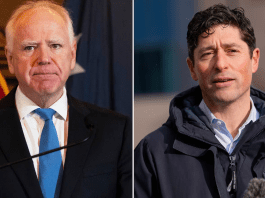The Department of Homeland Security has created a storm of reactions by sharing a video that mixes serious immigration enforcement with elements from the world of Pokemon. The one-minute video, posted online on 22 September, features Immigration and Customs Enforcement (ICE) agents conducting raids and making arrests.
Homeland Security Shares Unusual Pokemon-Themed Clip
Instead of presenting the operation in a typical formal way, the editors combined the enforcement footage with clips from the famous anime Pokemon. The creators also chose the original Pokemon theme song as the background music, which millions of fans worldwide instantly recognize.
The ending of the video especially catches the eye. It shows Pokemon-style cards that display the face of each person arrested, along with details of the alleged crimes. The video also carries the caption “Gotta Catch ‘em All!”, a direct line from the franchise, but here repurposed to highlight arrests made during ICE operations. Homeland Security’s unusual choice of presentation has become the main point of debate.
DHS expands ICE partnerships in the Midwest with new financial incentives to boost local involvement
Public Reaction to Homeland Security Video
The Homeland Security video has spread quickly across social media, drawing sharp criticism and strong reactions. Many people have questioned why a government department would use a children’s cartoon theme song to showcase law enforcement activities. Comments online described the video as “shameful” and accused Homeland Security of making light of serious immigration matters.
Critics argued that blending entertainment content with real-life arrests risks trivializing the lives and situations of those involved. The Pokemon franchise is generally associated with fun, adventure, and childhood nostalgia, not with law enforcement. Viewers expressed discomfort that Homeland Security chose to align its messaging with a cartoon that appeals largely to younger audiences.
📵 ICE Raids Ignite L.A. Protests—DOJ Accuses ICEBlock of “Endangering Federal Agents”
Some online reactions also raised legal concerns. Questions emerged about whether Homeland Security had obtained the proper rights to use the Pokemon theme song and animated clips in its video. A number of social media users even suggested that the company behind the franchise should take action against the government for copyright misuse.
The video also sparked a wider debate about tone and messaging in official government communications. Traditionally, Homeland Security announcements are presented in a formal and serious style. This lighthearted and pop-culture-inspired approach surprised many observers and amplified the backlash.
Homeland Security’s Controversial Communication Approach
The timing of this video is important to note. Homeland Security has been ramping up its immigration enforcement measures, with ICE raids receiving considerable attention. These operations are typically serious, involving the detention of individuals accused of breaking immigration laws. By presenting such actions through a cartoon-inspired montage, Homeland Security has drawn attention to the way it communicates its policies and actions.
The phrase “Gotta Catch ‘em All!” is among the most famous lines in pop culture, tied to the idea of collecting creatures in the Pokemon universe. But in this Homeland Security video, the slogan is reinterpreted to suggest the collection of people during raids. This shift in context is one of the reasons critics found the video troubling.
Hyundai confirms $2.7 billion Georgia expansion after immigration raid raised investment concerns
Supporters of strict immigration enforcement may view the creative presentation as a way to emphasize the effectiveness of ICE raids. However, a much larger number of responses online have expressed anger, disbelief, or disappointment with Homeland Security’s decision. For many, the video crossed a line by mixing serious enforcement with child-focused entertainment.
The Homeland Security clip remains widely shared across platforms, fueling ongoing discussions about government messaging, the blending of entertainment with serious matters, and the role of public communication in shaping opinions about immigration enforcement.







